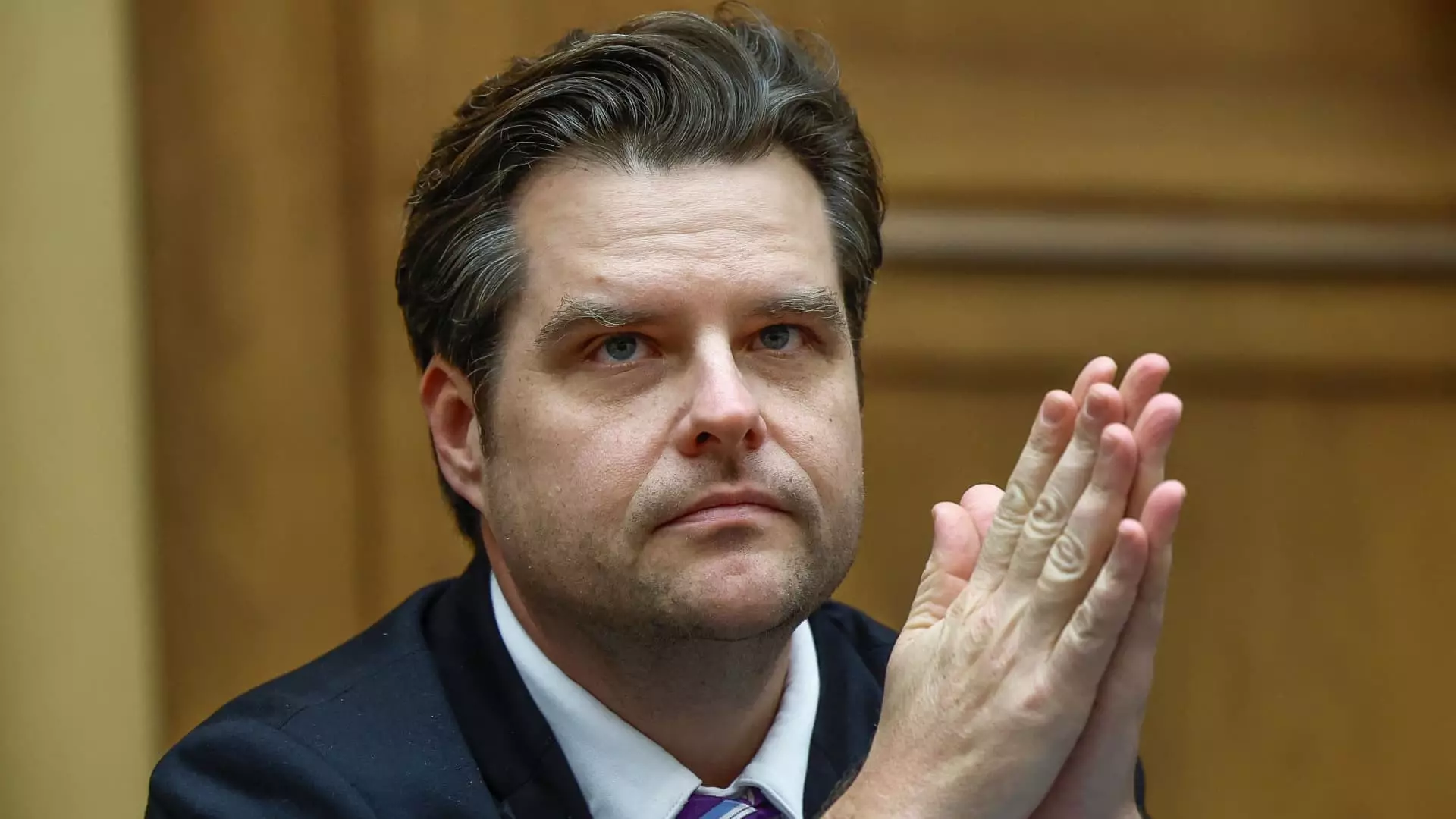The recent findings presented by the House Ethics Committee concerning former Republican Representative Matt Gaetz have ignited a firestorm of discussions surrounding ethics in public office and the serious consequences of alleged misconduct. This article delves into the critical aspects of the committee’s report, Gaetz’s actions, and the broader implications on political integrity and accountability.
The House Ethics Committee’s report, which surfaced following an investigation that began in 2021, concluded that there was “substantial evidence” indicating that Gaetz had sexual relations with a 17-year-old girl and frequently paid women for sexual services while serving in Congress. These were not mere accusations; the investigation spanned over several years and scrutinized Gaetz’s behavior during his term. The committee provided comprehensive evidence, which included the use of illicit drugs such as cocaine and ecstasy, alongside a systemic pattern of behavior that raised questions about his adherence to House Rules and legal standards.
One of the most striking aspects of the report is its reference to the nature of Gaetz’s conduct. The committee found that he engaged in actions that, in their view, discredited the House of Representatives as an institution. This critical lens brings to light not only personal failings but also sheds a damning spotlight on the ethical standards expected from elected officials. The report posed an uncomfortable inquiry: what safeguards exist to prevent individuals with such behavioral patterns from holding positions of power?
While the committee determined that Gaetz did not violate federal sex-trafficking laws, it distinctly noted that he facilitated the transportation of women across state lines for commercial sex. This dichotomy between moral wrongdoing and legal boundaries raises intricate conversations about consent, exploitation, and the legal framework governing such actions.
In the case of the 17-year-old girl identified as “Victim A,” the reported payment and subsequent sexual involvement present troubling implications regarding predatory behavior. Gaetz’s claim that he was unaware of her age at the time of their encounters complicates the typical narrative around consent and culpability. The committee argued that under statutory rape laws, ignorance of age does not excuse such behavior, emphasizing the strict liability associated with these offenses.
This disconnect between public perception and legal definitions of culpability poses questions about the efficacy of existing laws in protecting vulnerable populations. How can the legal system evolve to ensure accountability, especially concerning individuals in positions of power who might wield their influence to evade scrutiny?
The fallout from the reported findings extends beyond Gaetz himself; it has ramifications for the Republican Party and the broader political landscape. The controversy surrounding Gaetz’s behavior and subsequent ethical review could undermine trust in the political vetting processes employed by parties, particularly given that Gaetz was once considered for a prominent role in the incoming administration of President-elect Donald Trump.
Following the release of the Ethics Committee report, concerns circulated about the potential impact on Senate confirmations for Trump’s cabinet picks. Gaetz’s abrupt withdrawal from consideration for the Attorney General position illustrated a significant distraction during a critical transitional period for the Republican Party. The interplay of individual comportment and collective political integrity is a nuanced discussion; it raises fundamental questions about how the actions of one member can ripple through an entire political party’s reputation and effectiveness.
As the dust settles on the revelations about Matt Gaetz, several lessons emerge regarding the importance of ethical governance in public office. The committee’s thorough investigation stands as a reminder of the need for rigorous standards to oversee representatives’ conduct, thereby reinforcing public trust in democratic institutions.
The complexities of maintaining ethical behavior amidst the intricacies of political life illustrate the tension between power and accountability. Moving forward, it is essential for lawmakers, parties, and constituents to prioritize transparency, ensuring that robust frameworks are in place to address misconduct. The case of Matt Gaetz serves as a cautionary tale; one that encourages ongoing dialogue about ethics, integrity, and the critical need to hold elected officials accountable for their actions.


Leave a Reply